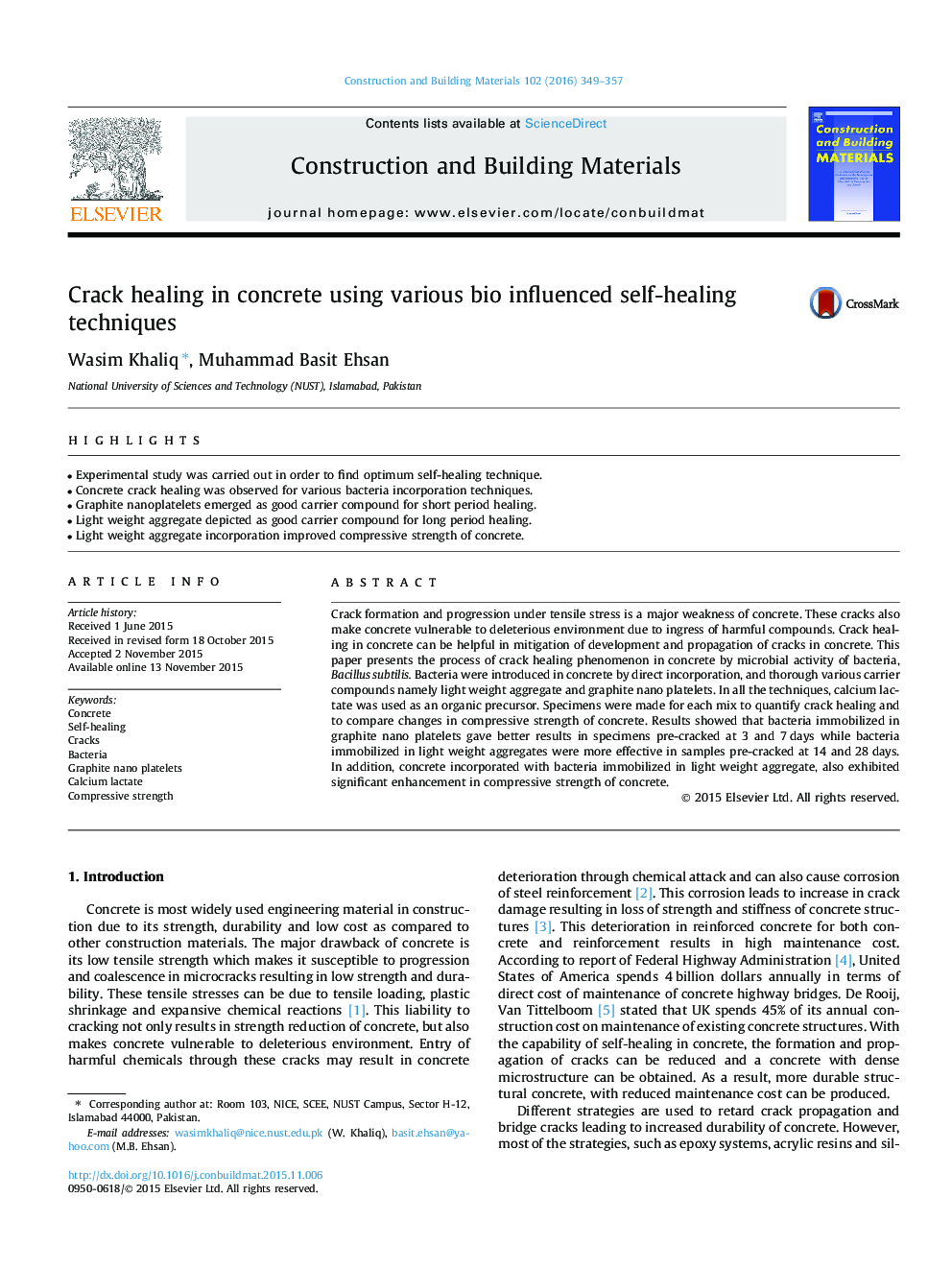| Article ID | Journal | Published Year | Pages | File Type |
|---|---|---|---|---|
| 10285040 | Construction and Building Materials | 2016 | 9 Pages |
Abstract
Crack formation and progression under tensile stress is a major weakness of concrete. These cracks also make concrete vulnerable to deleterious environment due to ingress of harmful compounds. Crack healing in concrete can be helpful in mitigation of development and propagation of cracks in concrete. This paper presents the process of crack healing phenomenon in concrete by microbial activity of bacteria, Bacillus subtilis. Bacteria were introduced in concrete by direct incorporation, and thorough various carrier compounds namely light weight aggregate and graphite nano platelets. In all the techniques, calcium lactate was used as an organic precursor. Specimens were made for each mix to quantify crack healing and to compare changes in compressive strength of concrete. Results showed that bacteria immobilized in graphite nano platelets gave better results in specimens pre-cracked at 3 and 7Â days while bacteria immobilized in light weight aggregates were more effective in samples pre-cracked at 14 and 28Â days. In addition, concrete incorporated with bacteria immobilized in light weight aggregate, also exhibited significant enhancement in compressive strength of concrete.
Related Topics
Physical Sciences and Engineering
Engineering
Civil and Structural Engineering
Authors
Wasim Khaliq, Muhammad Basit Ehsan,
